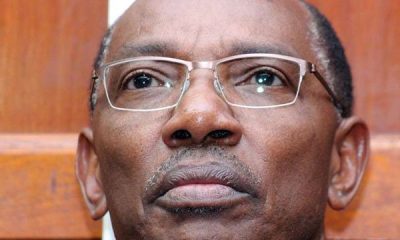Despite widespread calls for austerity measures and the challenging economic times faced by Kenyans, President William Ruto, Deputy President Rigathi Gachagua, and Members of Parliament (MPs) are set to enjoy a substantial 14 percent pay raise over the next two years.
The proposed review, put forward by the Salaries and Remuneration Commission (SRC), aims to cushion these state officers against the rising cost of living.
If approved, this pay raise would provide significant relief to officials who have been grappling with the persistently high inflation that has eroded personal incomes and driven up the cost of basic consumer products.

However, it is important to note that this move raises concerns about the growing disparity between the salaries of state officers and the struggling salaried workers, part-time workers, and those in the informal sector, who continue to bear the brunt of the biting inflationary environment.
President Ruto’s monthly gross remuneration package is expected to rise by 7.1 percent from July 2023, reaching a staggering Sh1,546,875, before another 6.7 percent increase to Sh1,650,000 from July 2024.
Similarly, Deputy President Rigathi Gachagua will witness a 14.3 percent jump in his remuneration package over the two-year period, with his monthly compensation rising to Sh1,367,438 from July 1, and eventually reaching Sh1,402,500.
Cabinet Secretaries will also see their remuneration rise to Sh1,056,000 per month starting from July 2024.
In addition to the pay raise, Members of Parliament, including senators, will experience an 8.3 percent wage increase over the next two financial years, earning Sh741,003 and Sh769,201 respectively, excluding committee sitting allowances, which are capped at Sh120,000 per month.
The proposed pay raise extends beyond the national government, as governors are set to receive a comparable increase in compensation, while Members of the County Assembly will witness a 14 percent rise in their monthly remuneration.
Moreover, other state officers, including principal secretaries, the Chief Justice, the Deputy Chief Justice, the Auditor-General, judges, the Director of Public Prosecutions, the Inspector-General of Police, and chairpersons of key commissions, will also enjoy a pay raise.
The proposed review encompasses allowances and benefits such as car loans, mortgage benefits, pensions, and medical and hospital insurance.
While the SRC has invited public comments on the proposed remuneration packages before finalizing them, the potential approval of these increases will undoubtedly expand the country’s already burdensome wage bill.

Members of Parliament are also set to benefit from the controversial 14% pay increase. [Image: PD]
As of the fiscal year ended June 2022, the national government’s wage bill stood at Sh506.29 billion, with the counties’ wage bill reaching Sh190.11 billion. The SRC has acknowledged that the escalating wage bill is impeding other government expenditures, and it has highlighted the importance of sustained revenue growth to mitigate its impact.
Unfortunately, private sector workers, who experienced a mere 5.6 percent wage increase in 2022, are left envious of the state officers’ substantial pay raise. Moreover, the meager wage growth in the private sector was effectively wiped out by inflation, which led to a 2.7 percent decline in real wage growth last year.
Inflation has remained persistently high this year, primarily driven by increased food and fuel costs. These economic challenges have compelled the Central Bank of Kenya to raise the benchmark lending rate to its highest level in nearly seven years.
May’s inflation rate reached 8.0 percent, surpassing the prescribed upper limit of 7.5 percent, further exacerbating the financial struggles faced by Kenyans.

 Investigations1 week ago
Investigations1 week ago
 Investigations1 week ago
Investigations1 week ago
 Investigations1 week ago
Investigations1 week ago
 Investigations1 week ago
Investigations1 week ago
 Opinion2 weeks ago
Opinion2 weeks ago
 News2 weeks ago
News2 weeks ago
 Investigations1 week ago
Investigations1 week ago
 Investigations1 week ago
Investigations1 week ago






























